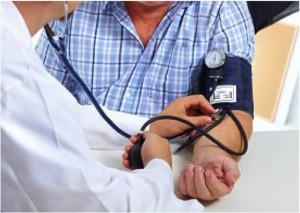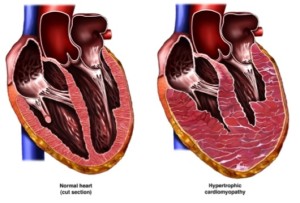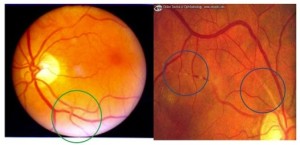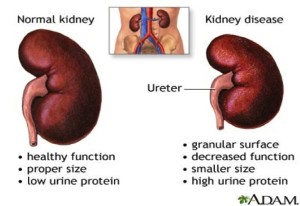Contact Us




Ageing and high blood pressure is a common health issue with many misconceptions. There are many controversies surrounding this topic and considerable difference of opinion regarding the diagnosis and treatment of this disorder.
What is Blood Pressure?
 The heart pumps blood through blood vessels by creating a pressure, and this pressure is created in a pulsatile manner with each heart beat. The higher pressure created by the heart beat is called the Systolic blood Pressure and the blood continues to flow at a lower pressure called the Diastolic blood pressure.
The heart pumps blood through blood vessels by creating a pressure, and this pressure is created in a pulsatile manner with each heart beat. The higher pressure created by the heart beat is called the Systolic blood Pressure and the blood continues to flow at a lower pressure called the Diastolic blood pressure.
Why is Blood pressure called the “silent killer”?
We know that a persistent high blood pressure causes an increased risk for heart attacks, strokes, kidney failure etc and yet for the most part the person is unaware of the high blood pressure since there are no symptoms.
 How is High Blood Pressure diagnosed?
How is High Blood Pressure diagnosed?
You may have your blood pressure taken in a doctor’s office, or a clinic or one of the camps that are held regularly in the community. Blood pressure higher than 140/90 (one or both numbers) would be called Hypertension. (High blood pressure). Sometime a blood pressure between 120-140 would be labelled as pre-hypertension as this level puts you at a higher risk of developing hypertension.
|
What Do the Numbers Mean? |
||
|
Systolic |
Diastolic |
|
|
Normal Blood Pressure |
Less than 120 |
Less than 80 |
|
Prehypertension |
Between 120–139 |
Between 80–89 |
|
High Blood Pressure |
140 or more |
90 or more |
|
Isolated Systolic Hypertension |
140 or more |
Less than 90 |
Is there such a thing as low blood pressure? Yes there is. This will make you feel weak, lightheaded or dizzy. This usually happens when the person has been very ill and bed ridden, dehydrated, blood loss or due to medications.
 What can you do about blood pressure? There are some risk factors that can be changed and some that can’t be changed.
What can you do about blood pressure? There are some risk factors that can be changed and some that can’t be changed.
 How can I control my blood pressure:
How can I control my blood pressure:
1) Keep a healthy weight. Blood pressure rises with weight gain. Obesity is a high value risk factor. Then again weight loss has been shown to have a potent effect on lowering blood pressure.
2) Exercise: Mild exercises (aerobics) leading up to moderate exercises for at least 30 mins a day will lower your blood pressure by almost 10 points. Caution: consult your physician before embarking on an exercise regime. The pro in the gym is not the ideal person to advice you on the intensity of exercise appropriate for you.
3) Diet: Much has been said about the importance of a healthy nutritious diet. In a nutshell staying on a diet of whole grains, fruits and vegetables with low fat dairy products topped up with various nuts is recommended as a general rule. People with associated problems such as diabetes or allergies may have to modify their diet.
4) Salt: High intake of salt has been linked to high blood pressure. We tend to classify people in the salt sensitive and the salt insensitive cohorts but as a general rule low salt intake is recommended.
5) Alcohol: Various thought on this subject is available in the press. For certain a person with uncontrolled blood pressure should avoid alcohol. In a stable situation a small quantity of alcohol does not do any harm. Some authorities claim that the alcohol may even help in lowering blood pressure but that claim has no basis in literature.
6) Smoking: Smoking is injurious to your health and is a risk for raising your blood pressure.
7) Lifestyle changes: The constant stress of modern life is a definite risk factor for high blood pressure. While unavoidable the effects can be mitigated by getting some quite time for yourself, yoga or meditation have been shown to lower blood pressure.
Some additional facts:
Written by Dr. Satish Chawla MD, FACP, AIIMS, who is a retired Geriatric Physician from the United States Navy. He is an expert in geriatric medicine, and on Samvedna’s panel of experts.
Samvedna Care –
We at Samvedna Care aim to help seniors live happy, active and independent lives, in the comfort of their home and community through interactive caregiving.
Samvedna was established in October 2013 with two complementary goals – firstly to provide quality at-home care services to seniors with limited mobility and social interaction, and secondly to facilitate stimulating community interaction and participation.
Our At-Home Care Services for General Wellbeing aim to raise the quality of life of seniors through a monthly interactive programme in the comfort of their home. Our senior care specialists, who are trained psychologists and gerontologists, keep them active and engaged through physical, mental and social activities. The activities include intellectual companionship, mind stimulation activities like puzzles and crosswords, playing games, dancing and singing, social outings for coffee or mall and more.
More – https://www.samvednacare.com/home-care-services/home-care-package/elder-care
Please call us for more info – 98184 21446, 124 4229659